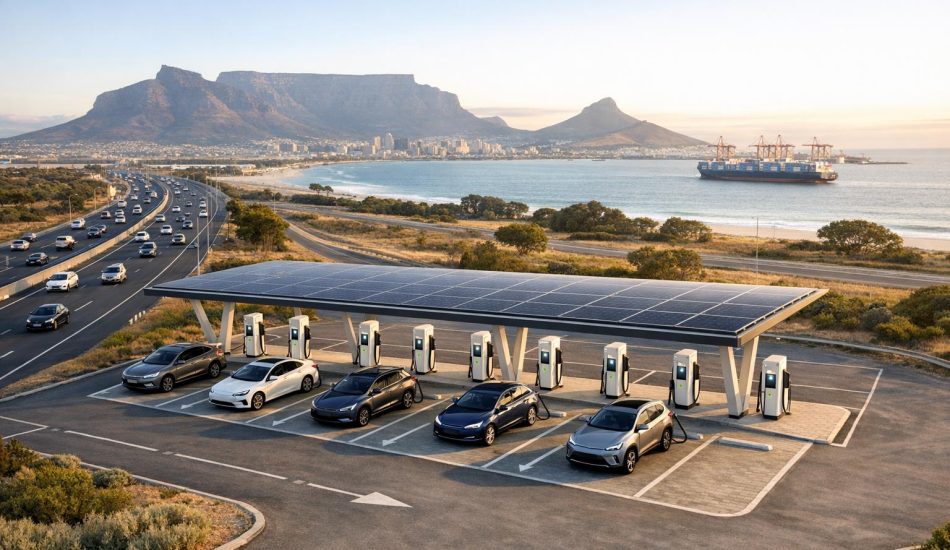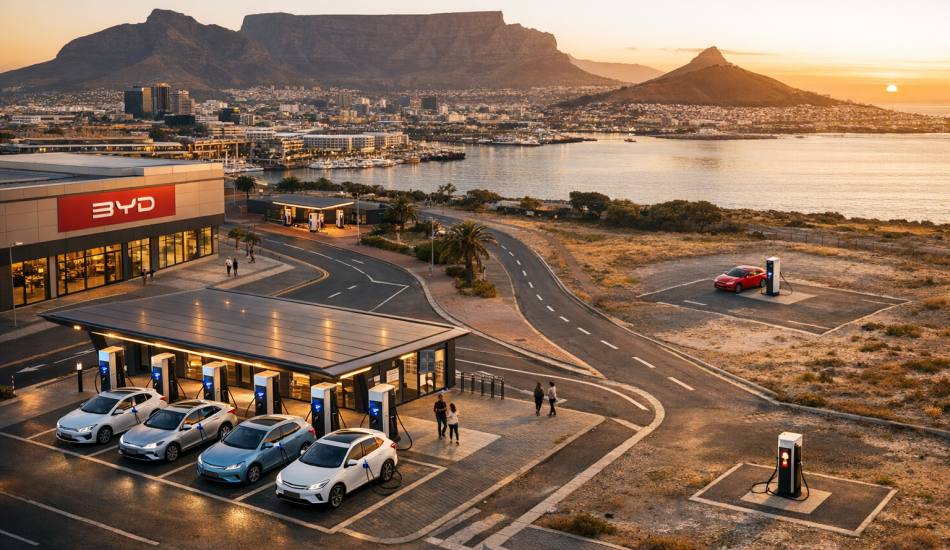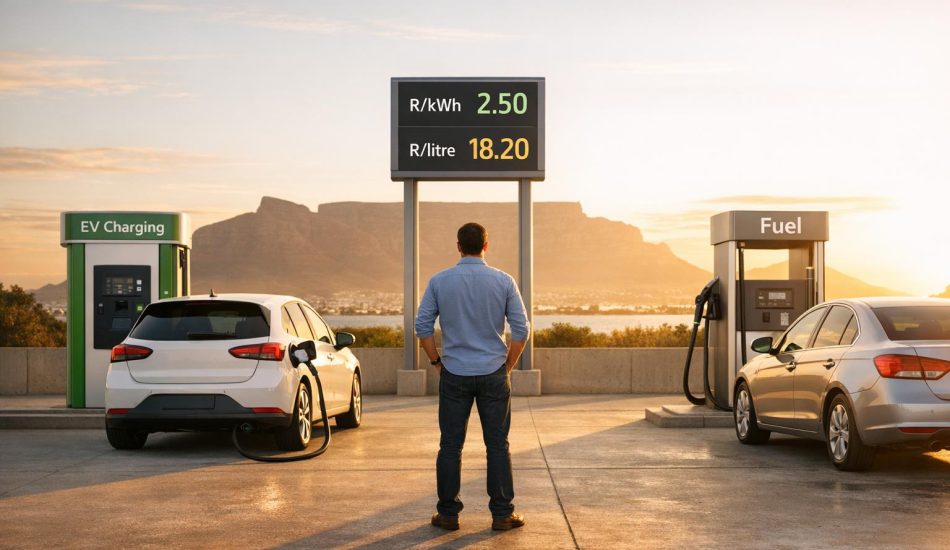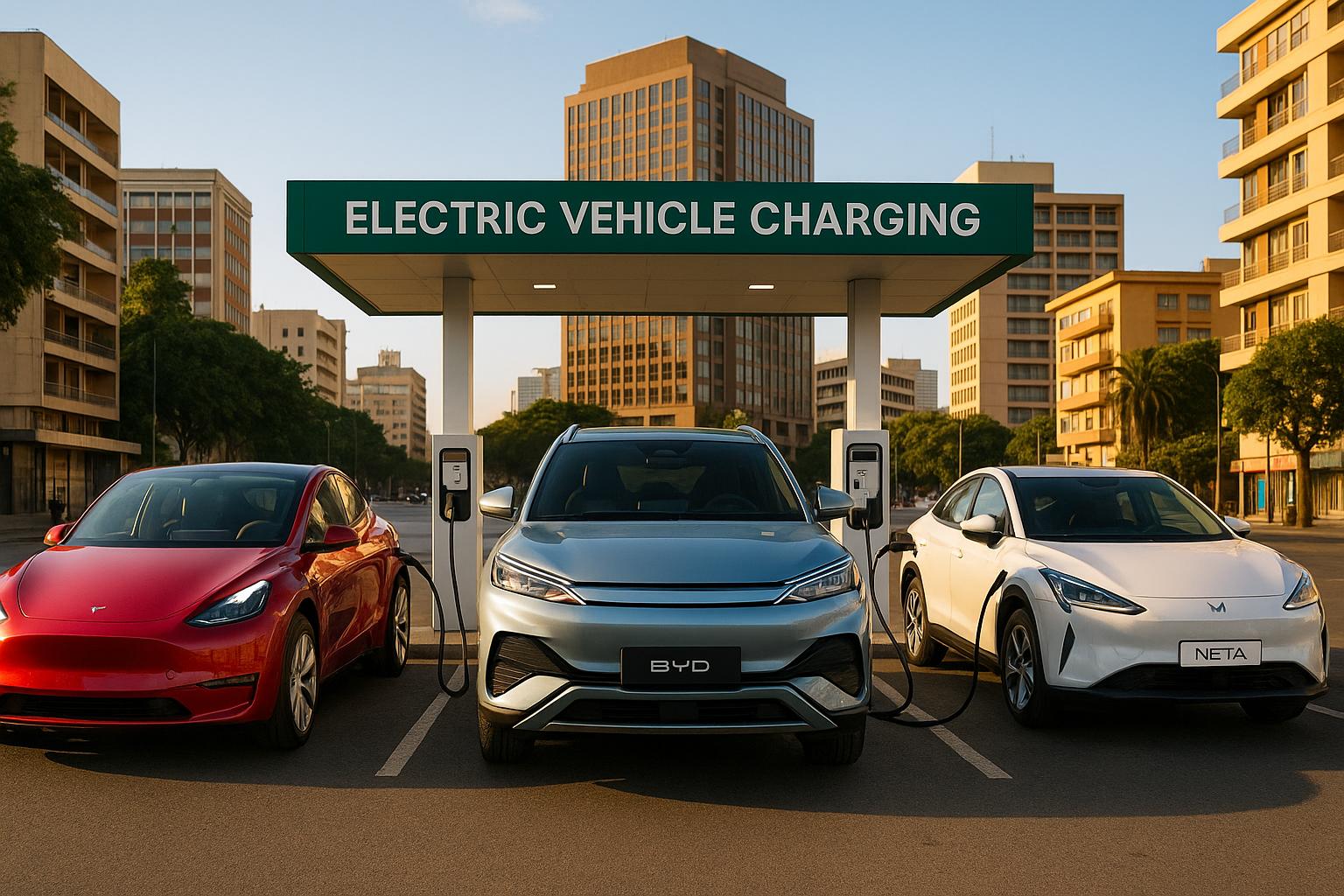
Africa’s electric vehicle (EV) market is expanding fast in 2025, driven by lower EV costs, government incentives, and better charging infrastructure. Leading brands like BYD, Tesla, and Neta are competing to meet the region’s growing demand, alongside others like Hyundai, Toyota, and Leapmotor. Here’s what you need to know:
- BYD focuses on affordability with its in-house battery production and heat-resistant Blade Battery technology.
- Tesla targets premium buyers with advanced features like its Autopilot system and Supercharger network.
- Neta offers budget-friendly EVs with smart tech for users in areas with limited charging stations.
- Other brands, such as Hyundai, Toyota, and Suzuki, bring reliable options backed by extensive dealer networks.
Each brand tailors its approach to Africa’s diverse needs, balancing cost, technology, and after-sales support. Below is a quick comparison of the top players:
Quick Comparison
| Brand | Price Range | Key Features | After-Sales Support | Target Market |
|---|---|---|---|---|
| BYD | Affordable | Durable batteries, local assembly | Growing | Budget-conscious |
| Tesla | Premium | High-tech, fast charging | Limited | Tech enthusiasts |
| Neta | Mid-range | Smart connectivity, affordability | Developing | First-time buyers |
| Hyundai | Mid-range | Fast charging, user-friendly | Strong | All-round buyers |
| Toyota | Mid-range | Established reliability | Extensive | Rural and urban |
| Leapmotor | Affordable | Feature-rich models | Limited | Budget-conscious |
Whether you’re looking for affordability, cutting-edge features, or reliability, Africa’s evolving EV market offers options for every type of buyer.
2025 BYD Dolphin Surf | New Electric Hatchback for South Africa
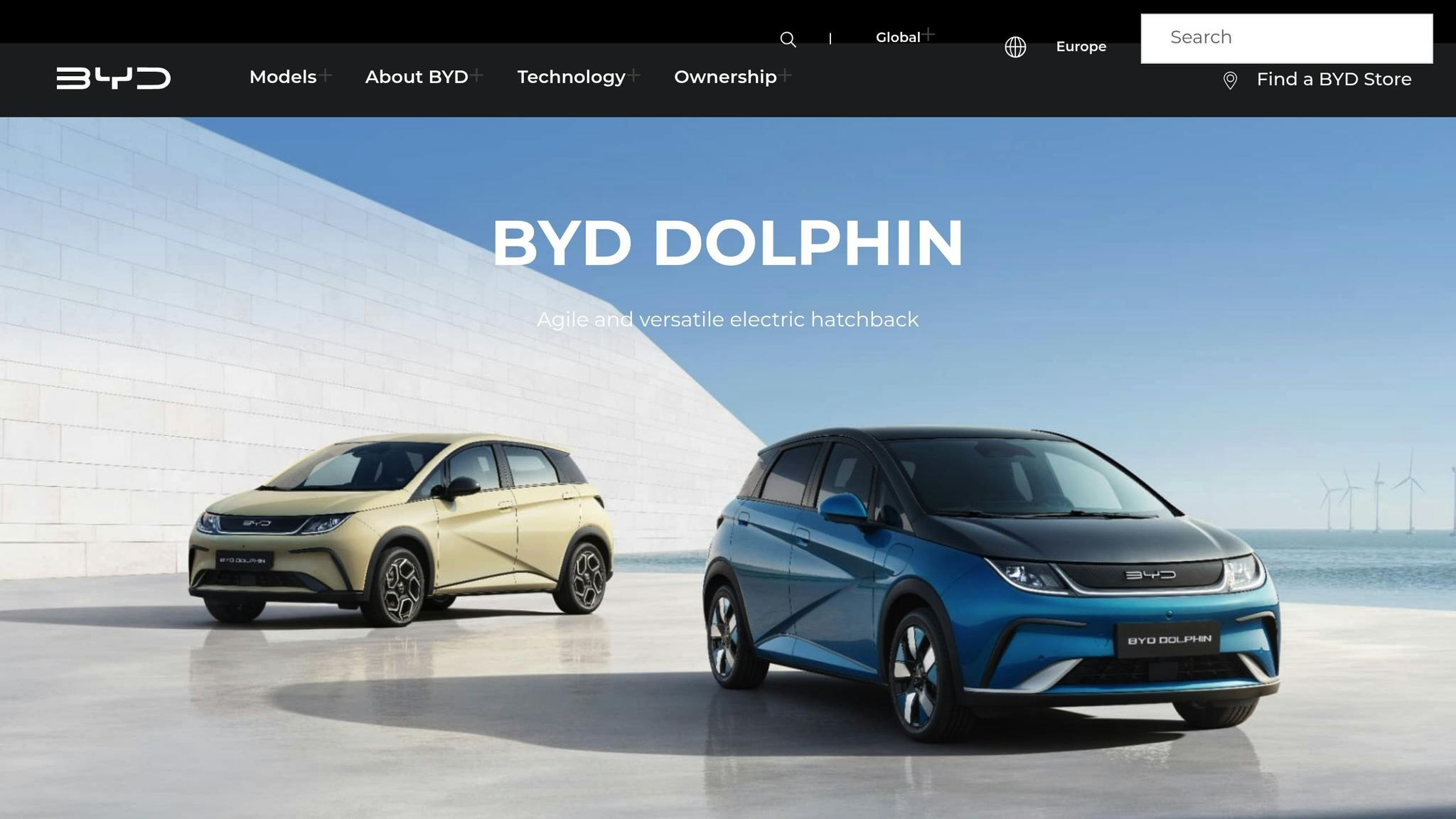
1. BYD
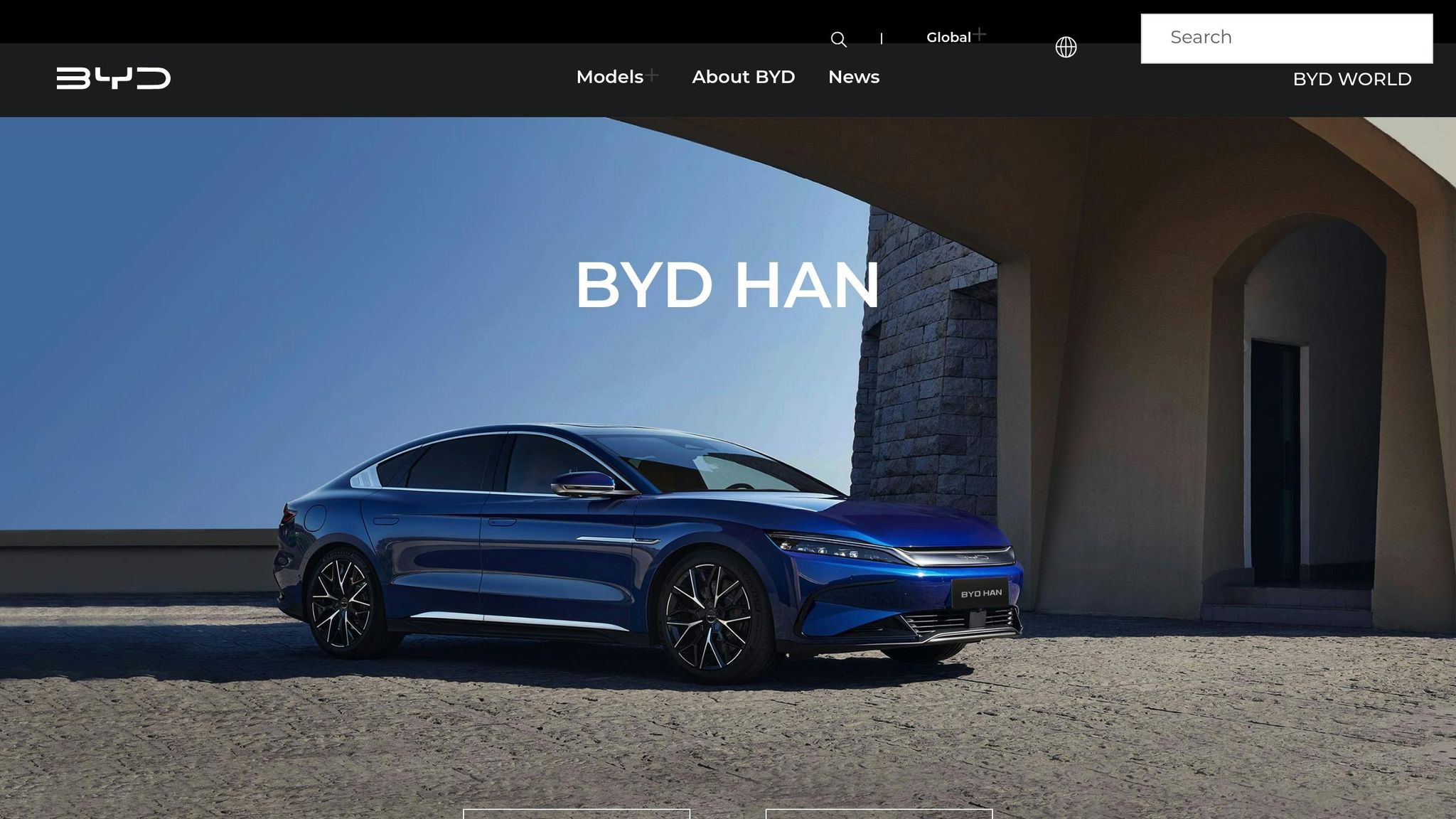
BYD is making strides in Africa by forming local partnerships and offering competitively priced electric vehicles (EVs). Here’s a closer look at how the company is positioning itself in this growing market.
Keeping Costs Low
By producing its own batteries, BYD significantly reduces EV costs. This makes their vehicles more accessible to first-time buyers and fleet operators alike.
Advanced Technology
BYD’s Blade Battery technology is designed to handle extreme heat, a crucial feature for many African regions. It also supports bidirectional charging, allowing the vehicle to double as a mobile power source.
Tailored to Local Needs
Through partnerships for local assembly, BYD adapts its operations to fit regional driving conditions. This not only helps keep prices competitive but also boosts local economies.
Reliable After-Sales Service
BYD invests in building local expertise by training technicians, deploying mobile service units, and expanding its parts network to ensure customers receive dependable support.
2. Tesla
Tesla is making its mark in Africa as the continent’s electric vehicle (EV) network grows. Known for cutting-edge technology, Tesla stands out in the premium EV market. Its Autopilot system and regular over-the-air updates keep improving the driving experience. Plus, Tesla’s Supercharger network offers quicker charging solutions, aligning perfectly with Africa’s developing EV infrastructure.
3. Neta
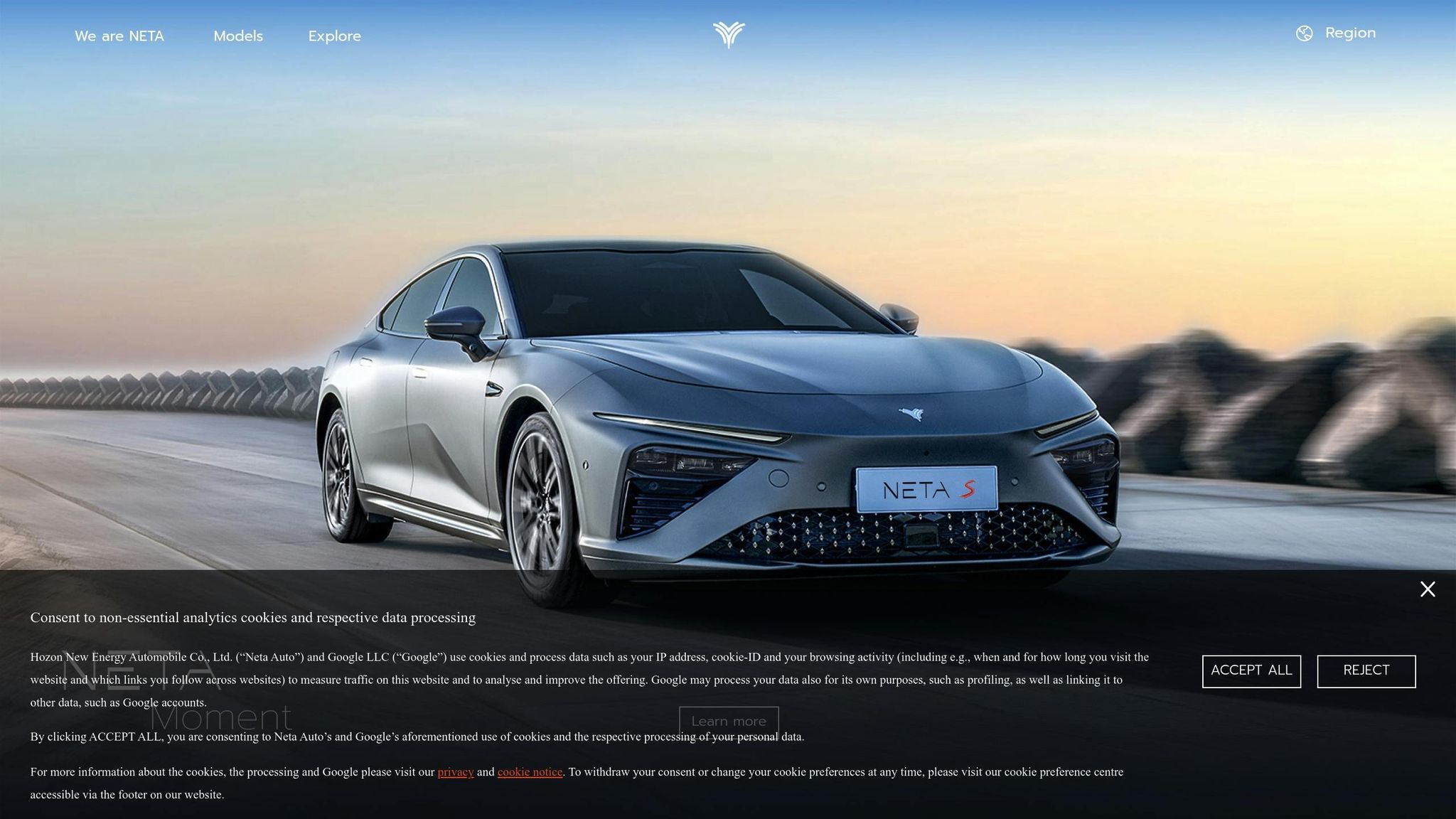
Neta, like other EV brands, designs its products to meet the specific demands of the African market. However, it sets itself apart by prioritizing affordability, making electric vehicles more accessible to a broader audience. The company aims to combine practical technology with everyday usability.
Affordability
Neta keeps its EVs within reach for more consumers by focusing on essential features rather than luxury extras. This approach ensures that the vehicles remain functional and budget-friendly without compromising on quality.
Technology and Innovation
Neta incorporates smart connectivity, advanced battery management systems, and user-friendly cockpit interfaces into its vehicles. These features are designed to boost performance and usability, especially in regions where charging infrastructure is still developing.
Market Adaptation
Understanding the challenges of diverse road conditions, Neta builds vehicles equipped to handle varying terrains. Additionally, it offers flexible charging solutions to support areas with limited access to charging stations, ensuring the vehicles remain practical in different environments.
After-Sales Support
Neta is strengthening its after-sales support by partnering with local dealerships and service centers. These partnerships are complemented by tailored warranty programs and remote diagnostic tools, ensuring reliable service and support for customers. This approach highlights Neta’s dedication to meeting the unique needs of local markets.
sbb-itb-99e19e3
4. Other Leading Brands (Leapmotor, ROX, Dongfeng, Geely, Hyundai, Toyota, Suzuki)
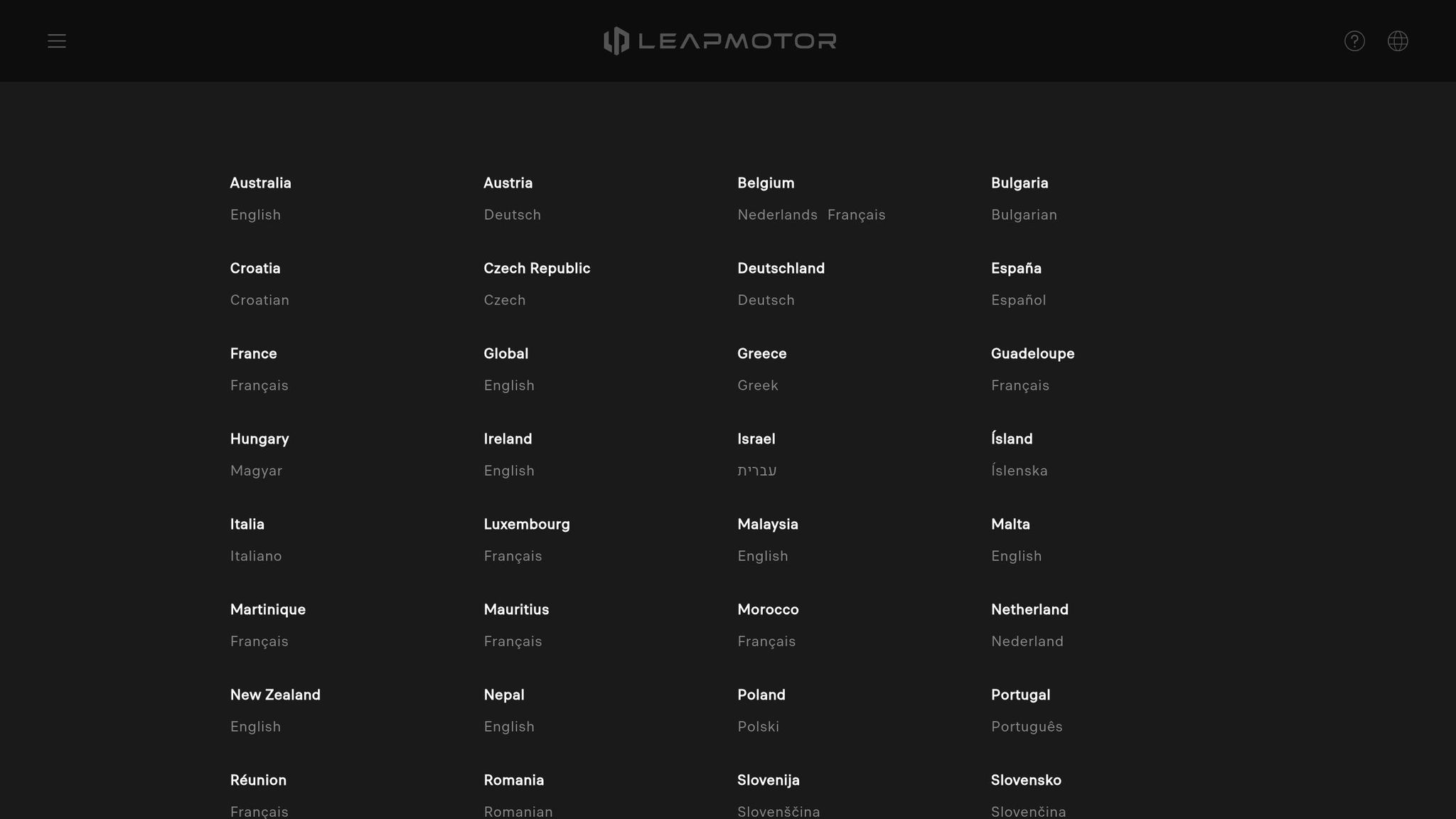
Africa’s EV market is growing, and several brands are stepping in to meet its evolving demands. This includes emerging Chinese players like Leapmotor, ROX, Dongfeng, and Geely, alongside well-established names such as Hyundai, Toyota, and Suzuki. Much like BYD, Tesla, and Neta, these brands are introducing models tailored to different budgets and preferences, each bringing their own technological strengths to the table.
Technology and Innovation
Hyundai, for instance, has been making waves with the Ioniq 5, which boasts cutting-edge charging capabilities. Its 800-volt architecture allows for faster charging, a feature that’s catching the attention of tech-savvy consumers. Analysts have pointed out:
Hyundai EVs, such as the Ioniq 5, are noted for offering a more familiar driving experience compared to Tesla, appealing to consumers who prefer not to "re-learn how a car works".
This balance of advanced technology and user-friendly design is a hallmark of Hyundai’s approach. Meanwhile, other brands are also carving out their niches with unique strategies and innovations.
Overview
While detailed information on specific strategies or after-sales services for some of these brands is still emerging, platforms like EV24.africa provide a valuable resource. They help consumers explore and compare options to find the EV that best suits their needs.
Brand Comparison: Strengths and Weaknesses
Understanding the strengths and challenges of each brand can help African consumers make informed decisions. Every manufacturer brings something different to the table, whether it’s pricing, technology, or local support. Here’s a closer look at how they stack up:
BYD is known for its affordable pricing and reliable technology. This Chinese automaker delivers cost-effective electric vehicles without skimping on essential features. Its Blade Battery technology is a standout, offering improved safety and durability, which appeals to budget-conscious buyers. However, BYD still struggles with building brand recognition and expanding its service network.
Tesla, on the other hand, shines with its advanced technology and premium branding. Features like the Supercharger network and over-the-air updates set a high bar for the industry. Tesla vehicles offer impressive range and performance, making them especially attractive to tech-savvy consumers. But, with premium pricing and limited service centers concentrated in major cities, accessibility remains a hurdle.
Neta strikes a middle ground, offering a mix of features at more affordable prices compared to Tesla. Its focus on smart connectivity and user-friendly interfaces makes it popular with younger buyers. However, as a newer brand, Neta faces challenges in building trust and establishing a strong service network.
Among the other leading brands, Hyundai combines advanced technology with user-friendly designs, backed by its long-standing automotive expertise. Toyota and Suzuki leverage their well-established dealer networks across Africa, providing peace of mind for buyers. Meanwhile, Chinese brands like Leapmotor, ROX, Dongfeng, and Geely compete aggressively on pricing and feature-rich models.
Here’s a breakdown of each brand’s strengths and weaknesses:
| Brand | Affordability | Technology Level | Market Fit | After-Sales Support |
|---|---|---|---|---|
| BYD | High | High | Excellent | Developing |
| Tesla | Low | Excellent | Good | Limited |
| Neta | Medium | High | Good | Developing |
| Hyundai | Medium | High | Excellent | Good |
| Toyota | Medium | Medium | Excellent | Excellent |
| Suzuki | High | Medium | Excellent | Good |
| Leapmotor | High | Medium | Good | Limited |
| ROX | High | Medium | Fair | Limited |
| Dongfeng | High | Medium | Good | Limited |
| Geely | Medium | High | Good | Developing |
When it comes to affordability, brands like BYD, Leapmotor, and ROX are among the most budget-friendly, with Suzuki also offering competitive pricing.
In terms of technology, Tesla leads the pack with its integrated ecosystem, followed by BYD’s standout battery innovations and Hyundai’s fast-charging capabilities. However, Chinese brands are rapidly closing the gap as they continue to invest heavily in research and development.
Market fit varies significantly across African regions. Long-established brands like Toyota, Suzuki, and Hyundai benefit from decades of experience in Africa, understanding local preferences and infrastructure challenges. Meanwhile, newer entrants must adapt quickly to meet the unique needs of the market.
After-sales support is another critical factor. Toyota stands out with an extensive dealer network spanning all 54 African countries. Platforms like EV24.africa also help consumers identify brands offering robust support in their areas.
Ultimately, the best choice depends on individual priorities. Budget-focused buyers might lean toward BYD or other affordable options, tech enthusiasts could opt for Tesla despite the higher cost, and those seeking reliability may prefer the established Japanese and Korean brands.
Conclusion
Africa’s electric vehicle (EV) market is growing quickly, with brands offering tailored solutions to meet urban, fleet, and rural demands. Each consumer segment has distinct needs, and different brands cater to these preferences. For urban buyers, brands like BYD and Neta stand out with competitive pricing and expanding support networks. Commercial fleet operators might lean toward Toyota and Hyundai, known for their reliability and strong after-sales services. Meanwhile, rural consumers often benefit from the widespread dealer networks provided by brands like Toyota and Suzuki.
When it comes to pricing, Chinese manufacturers such as BYD, Leapmotor, and ROX present budget-friendly options. However, it’s important for buyers to balance the appeal of lower upfront costs with considerations like long-term servicing and resale value.
Tesla remains a leader in innovation, but Chinese brands offer similar technologies at more affordable prices. On the other hand, Hyundai and Toyota provide a well-rounded mix of advanced features and proven dependability.
To make informed choices, consumers can take advantage of online tools like EV24.africa. This platform simplifies the buying process by offering clear comparisons and connecting buyers with local dealers, making the journey to owning an EV more accessible.
As Africa’s EV market continues to grow, finding the right brand comes down to aligning your priorities with what each manufacturer brings to the table.
FAQs
How is the affordability of electric vehicles driving market growth in Africa in 2025?
Affordability is playing a major role in the growth of the electric vehicle (EV) market across Africa in 2025. Brands such as BYD and Leapmotor are stepping up with budget-friendly models like the BYD Dolphin and Leapmotor T03, priced between $15,000 and $25,000. These options are making EVs more attainable for urban commuters and buyers who are mindful of their budgets.
Government policies are also making a difference. Tax rebates and reduced import duties – like those included in Cameroon’s 2025 Finance Bill – are helping to bring down the overall cost of owning an EV. On top of that, local manufacturing initiatives, such as those by Kemet Automotive, are reducing the need for imports. This not only cuts associated costs but also makes EV ownership a more realistic choice for a wider range of people.
How do BYD, Tesla, and Neta electric vehicles compare in terms of technology and features in Africa?
Africa’s electric vehicle market is heating up, with BYD, Tesla, and Neta carving out their own niches:
- BYD prioritizes affordability and practicality, with models like the Dolphin and Seal designed to handle the challenges of African roads. They also work closely with local partners for assembly and ensure dependable after-sales support.
- Tesla stands out for its advanced technology and luxury features, including autonomous driving and over-the-air updates. However, its premium pricing and reliance on exclusive charging infrastructure limit its appeal to a smaller, wealthier audience.
- Neta Auto has recently entered the scene with the Neta V, focusing on taxi operators through creative leasing programs. This strategy opens the door for small business owners and drivers to embrace electric vehicles.
These brands are shaping Africa’s shift to electric mobility by addressing diverse consumer needs – from cost-conscious buyers to tech enthusiasts – each contributing to the continent’s evolving automotive landscape.
How are electric car brands in Africa overcoming challenges with charging infrastructure and after-sales support?
Electric car brands in Africa are addressing the hurdles of charging infrastructure and after-sales support by coming up with creative solutions and forming strategic partnerships. Many of these companies are working to build accessible charging networks while teaming up with local businesses to broaden the reach of charging stations. This approach ensures that EV owners can rely on a growing network of charging options.
To improve after-sales support, these brands are setting up extensive service networks that cover maintenance, repairs, and access to spare parts. By focusing on the specific needs of their customers and adapting to local conditions, they’re making EV ownership easier and more practical for consumers across Africa.


